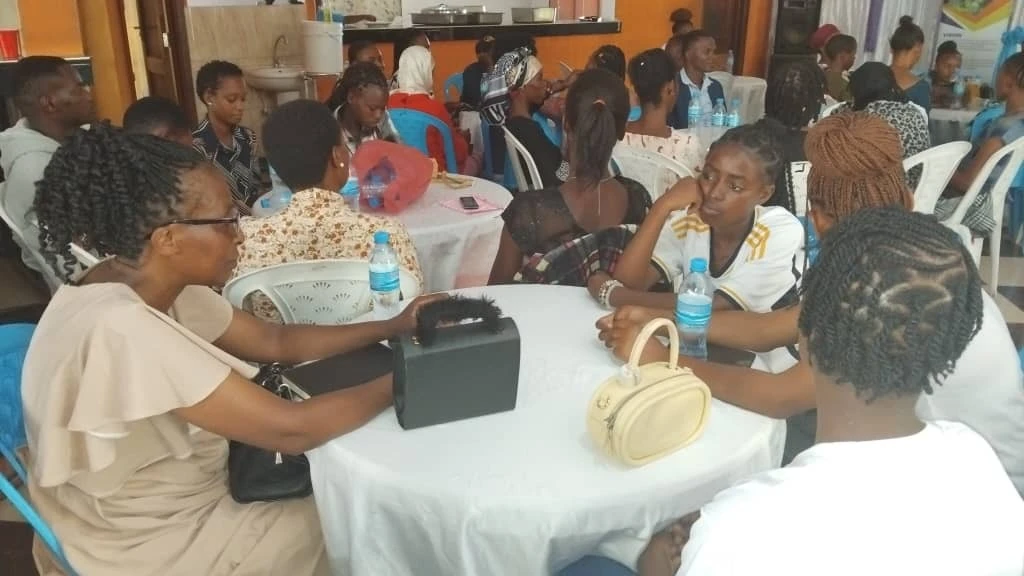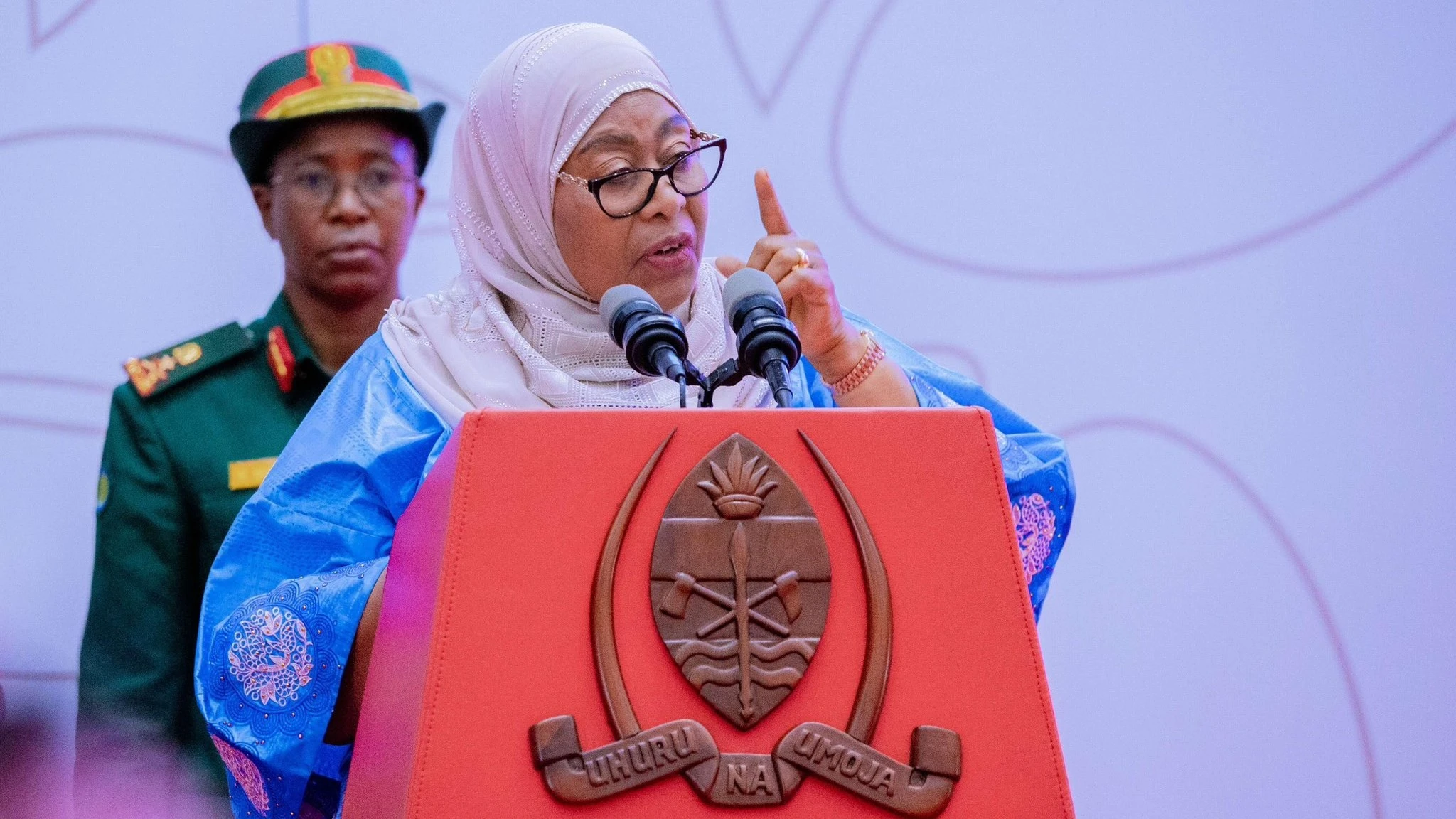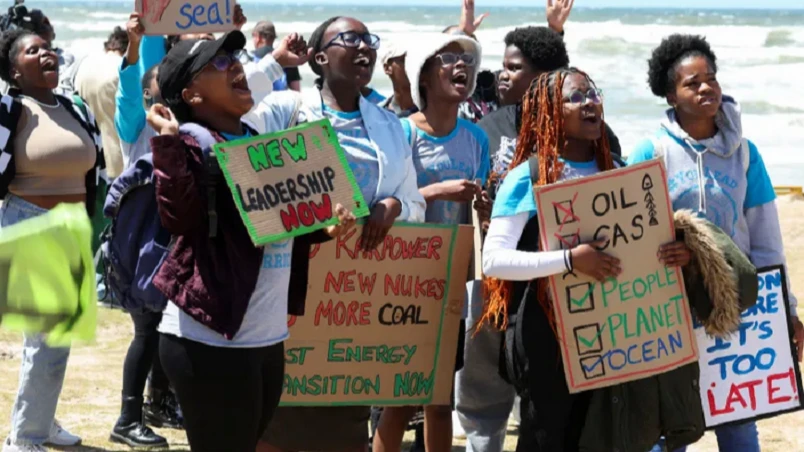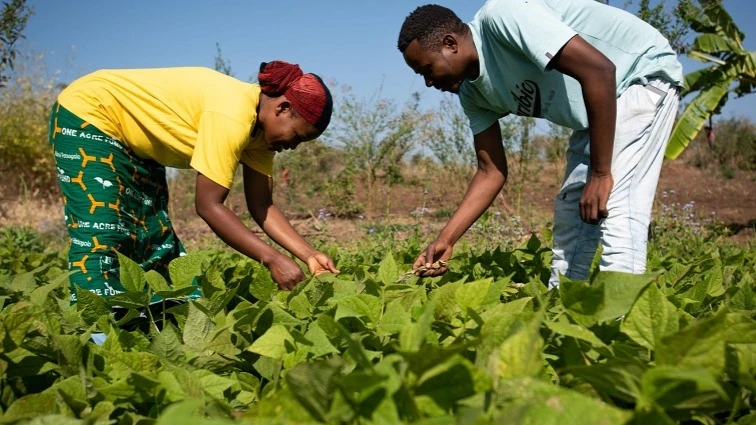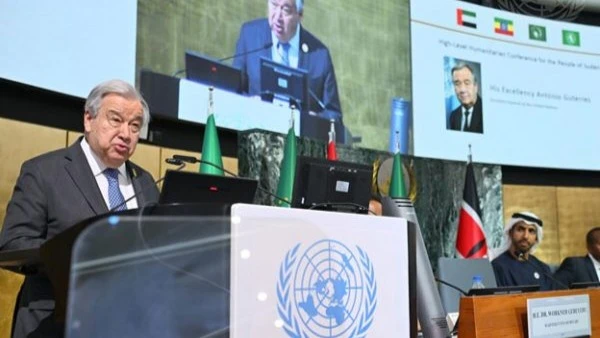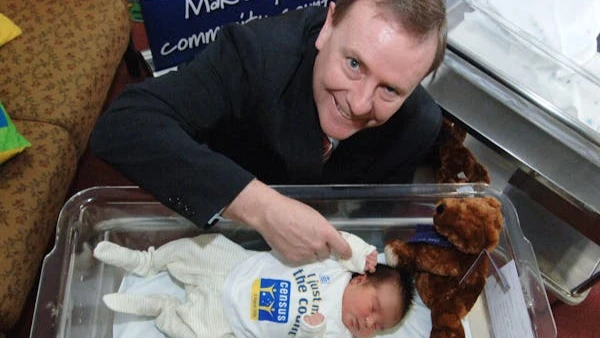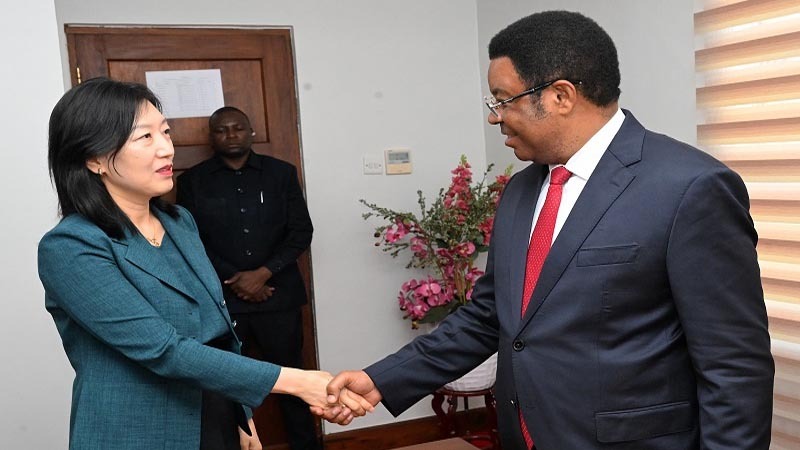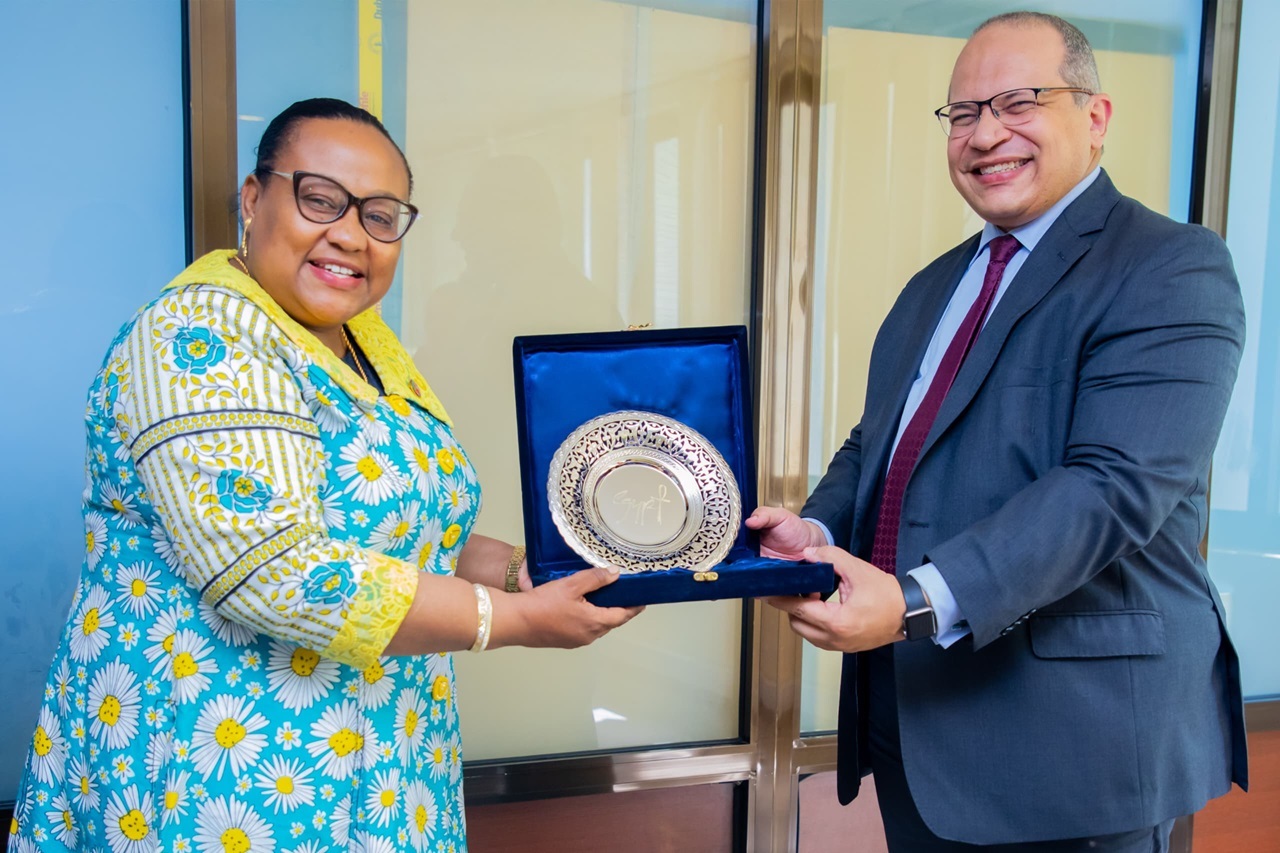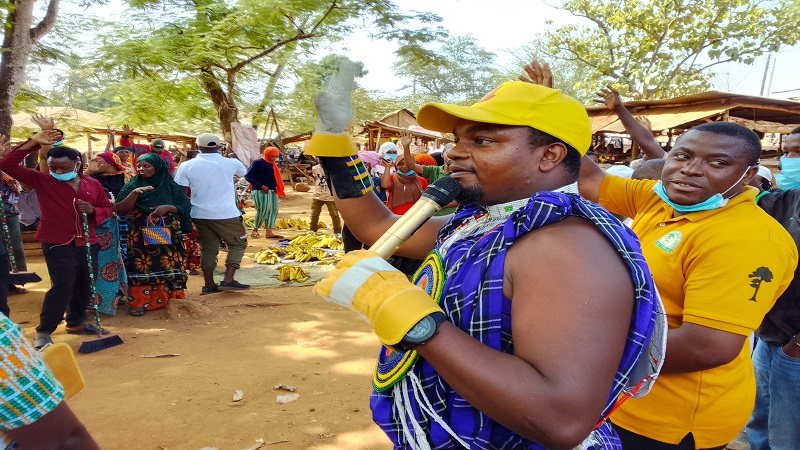Kilwa's plea for support in revolutionizing seaweed farming
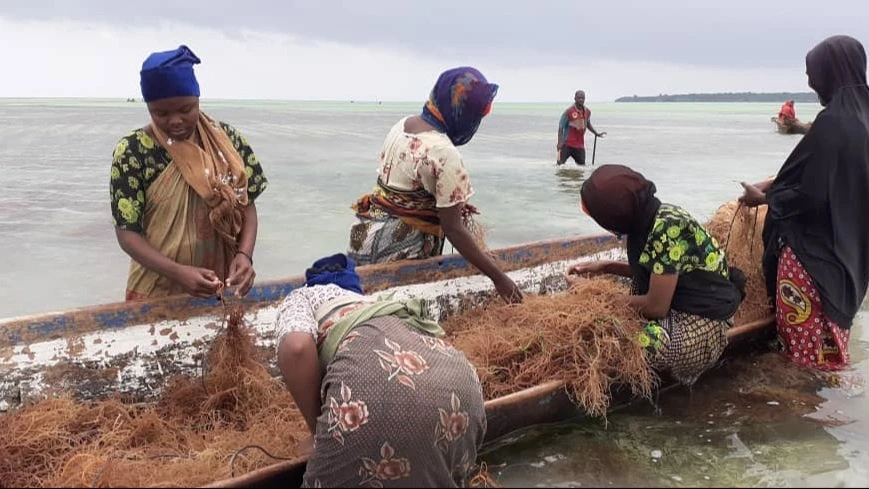
SEAWEED farmers in Kilwa district, Lindi region are seeking support to modernize their operations by acquiring state-of-the-art seaweed processing machines.
They are reaching out to stakeholders locally and globally for assistance in obtaining the necessary equipment to expand their production of high-quality seaweed products for the commercial market.
By kickstarting this initiative, they hope to not only boost the industry but also create employment opportunities for women and youth in the region.
Pili Kuliwa, the secretary of New Hope for Women (TUJIWAKI) in Kilwa, passionately called for support in a recent interview with this reporter.
She highlighted the challenges faced by seaweed farmers in the region and emphasized the crucial need for modern processing equipment to maximize the potential of their harvest.
Kuliwa expressed the organization's desire to delve into the production of value-added seaweed products like soap, lotion, and oil, which could not only enhance the lives of farmers but also increase market value.
The community needs additional support from donors to acquire necessary resources such as tarpaulins, stalls, and a designated marketplace for their goods, in addition to machinery.
The lack of a proper selling platform has hindered their business ventures, resulting in the selling of raw materials at low prices. With the right support, they believe they can establish a sustainable market for their products and create a thriving business environment.
Seaweed farming in Kilwa is a key income source that remains largely untapped, failing to reach its full potential in uplifting the community out of poverty.
The introduction of seaweed processing equipment holds the promise of transforming the industry, catalyzing economic growth, and paving the way for a brighter future in Kilwa.
In order to maximize the potential of the seaweed industry in the Kilwa District, it is crucial for the government to actively promote and facilitate foreign investments in the sector. By doing so, more jobs will be created, benefiting both youth and women in the region.
Effective management of seaweed farming in the Kilwa District has the potential to significantly boost economic growth and reduce poverty levels.
The simple farming process, short time farming cycle, and low capital requirements make it an accessible and lucrative option for local farmers.
Additionally, the use of inexpensive technology and provision of stable cash flows can serve as a powerful tool for gender empowerment in the community.
In order to increase the quantity of seaweed sold, it is essential to improve techniques in harvesting, transportation, and storage facilities. By addressing these areas of inefficiency, farmers will be able to increase their production levels and maximize their profits in the market.
Ulimboka Ndile, the Fisheries Officer for Kilwa District, has identified several challenges facing seaweed farmers in the area including a lack of input supply, ropes, storage facilities, and drying facilities, as well as deficiencies in sea and inland transport facilities. These challenges have resulted in low returns for farmers.
In an effort to help farmers increase their profits and produce higher quality products, over 300 seaweed farmers in Kilwa Kivinje, Masoko, Somanga, and Songosongo have received training on seaweed drying and processing to add value to their products.
Currently, seaweed is predominantly grown in 13 villages in the area including Songosongo, Somanga, Kilwa Kivinje, Milamba, Mayungiyungi, Ngomeni, Songomnara, Masoko, Songomnara, Malalani, Rushungi, and Pandeploti village. There are over 3,384 farmers involved in seaweed farming, with a total of 52 groups established to support their efforts.
Currently, there are two types of seaweed species grown in Kilwa: Spinosum and Cottonii. Farmers are engaged in both contract farming and non-contract farming.
It has been suggested that the availability of seaweed processing machines, tarpaulins, and stalls will improve the quality of their harvest, help them get better prices for their seaweed, and ultimately transform their lives for the better.
Top Headlines
© 2025 IPPMEDIA.COM. ALL RIGHTS RESERVED













